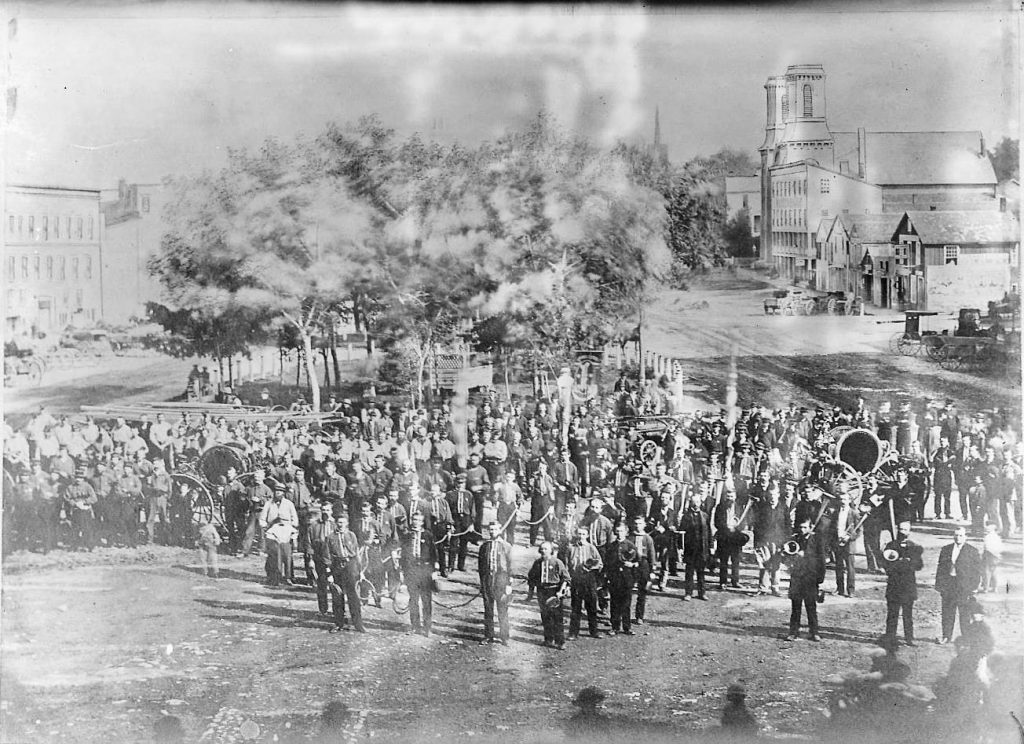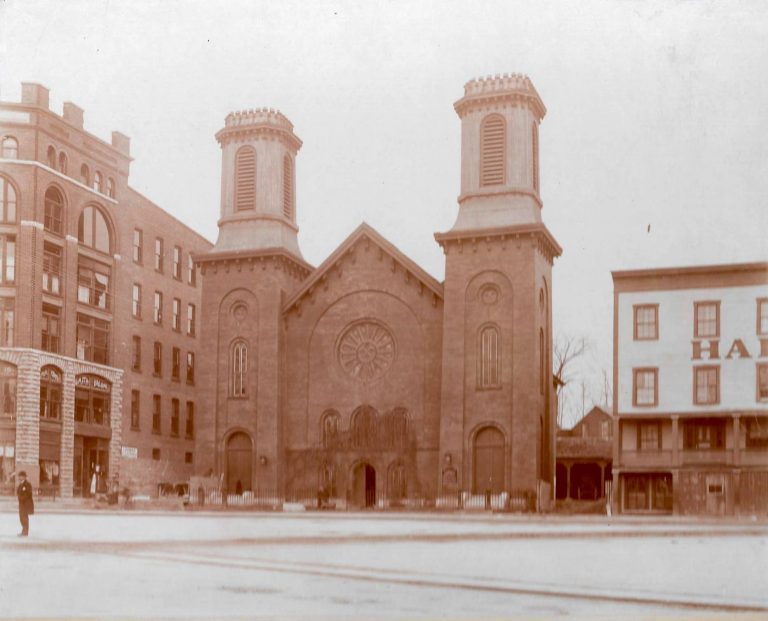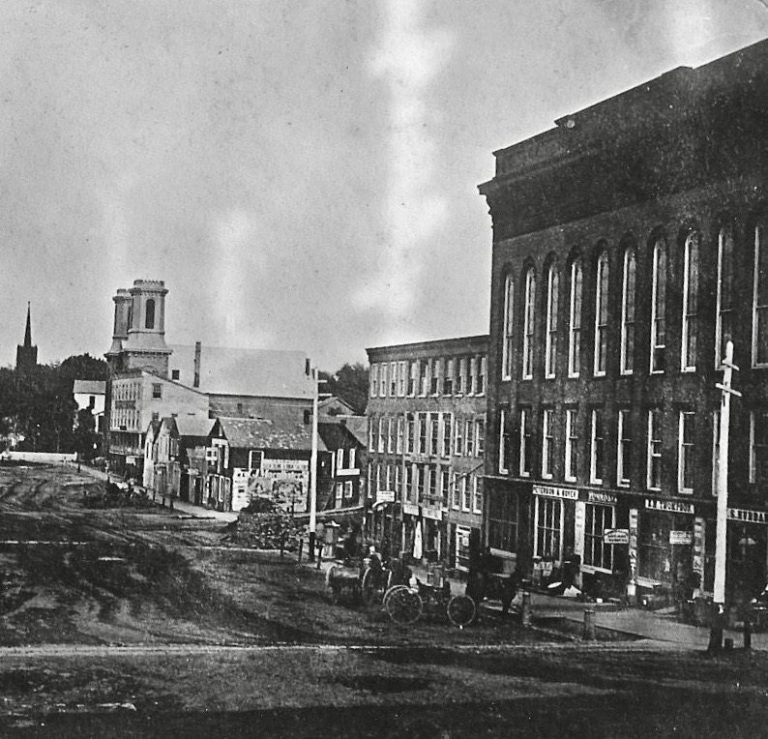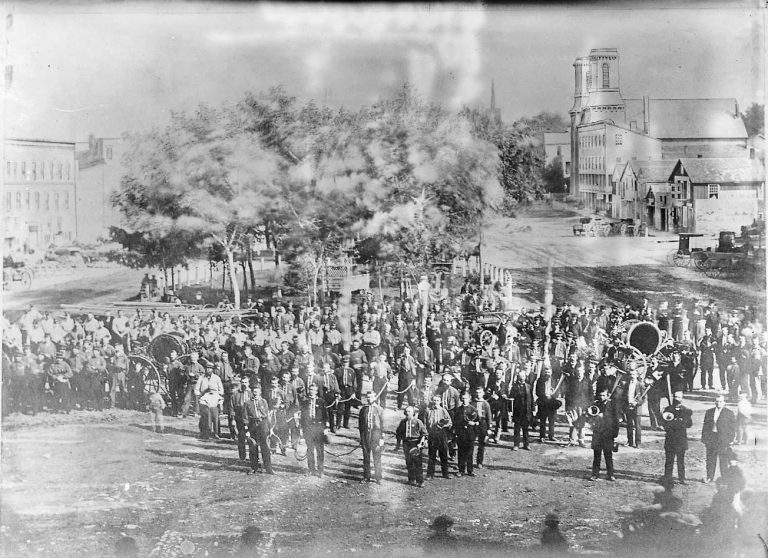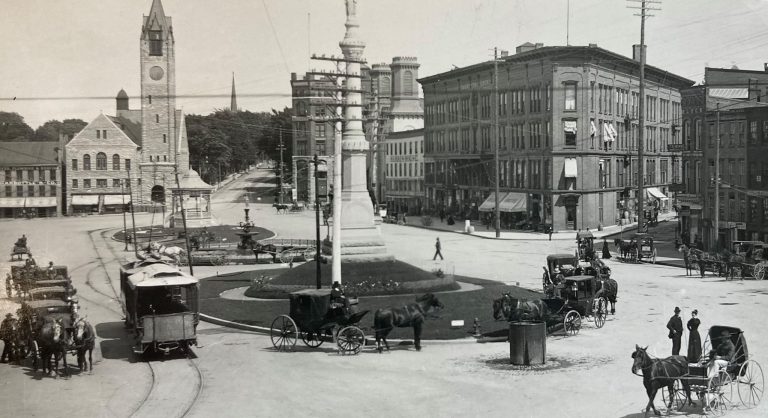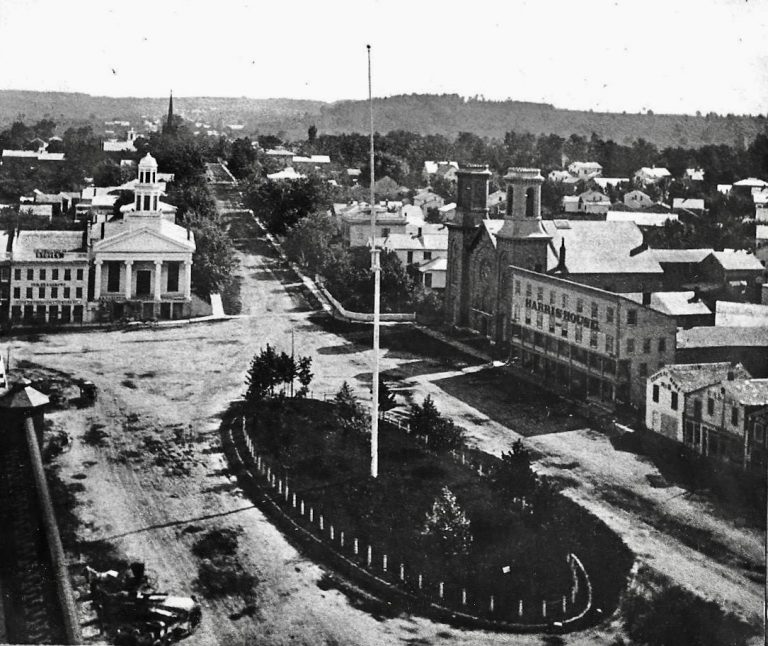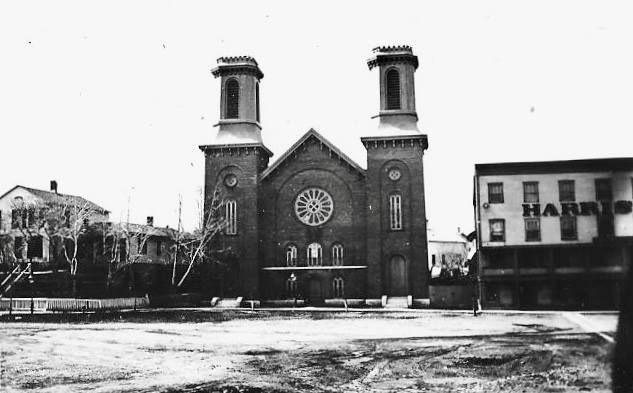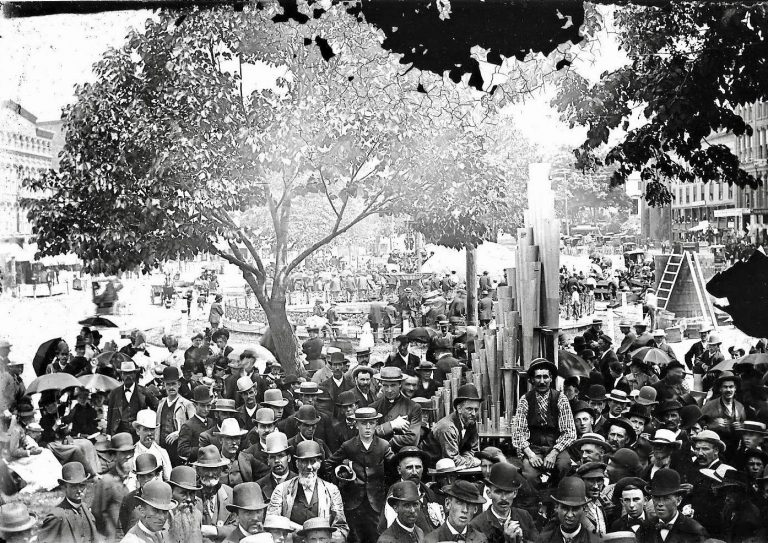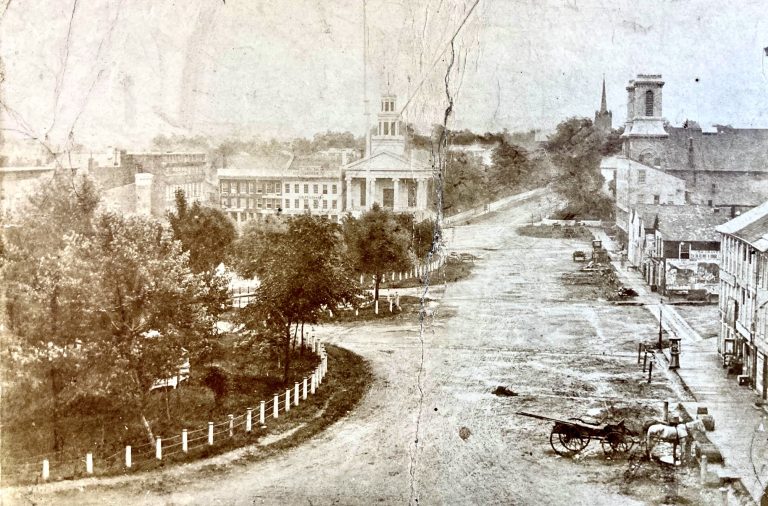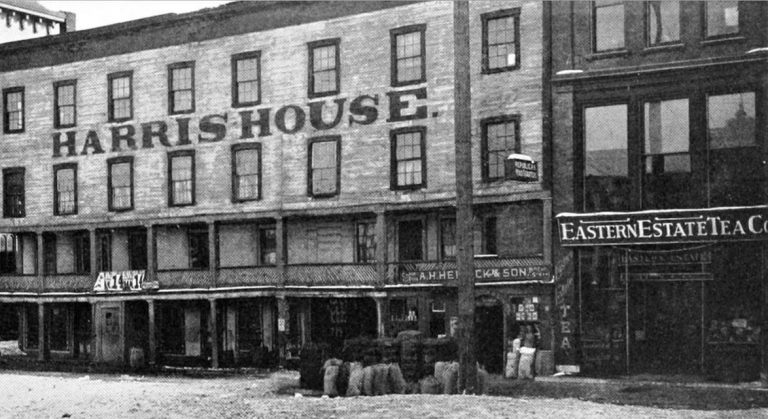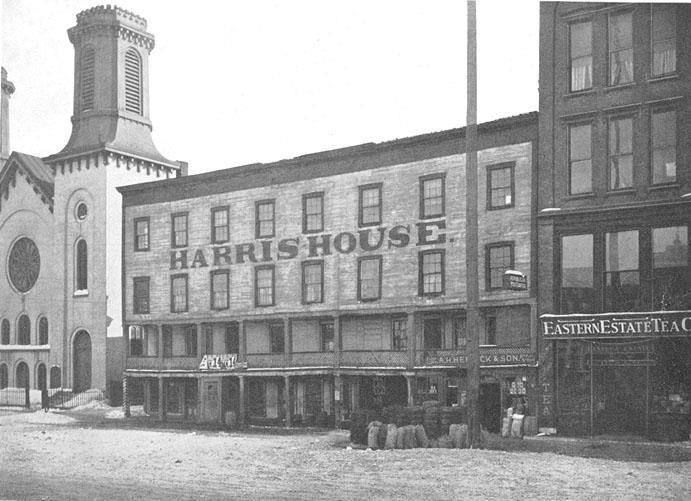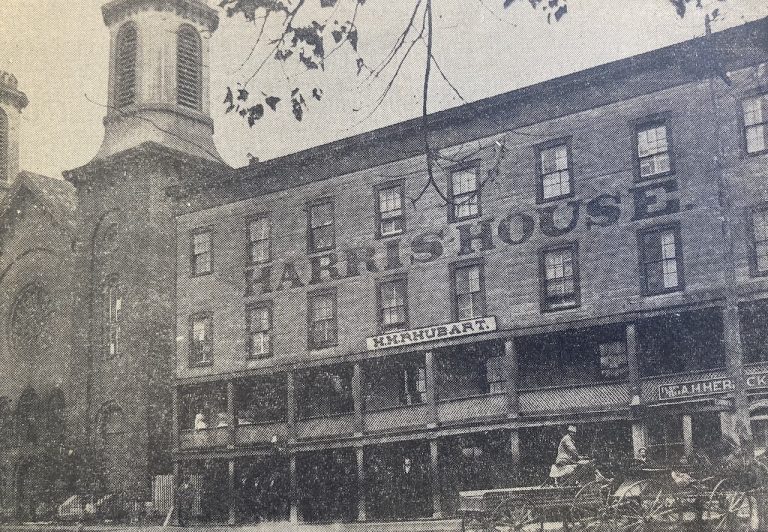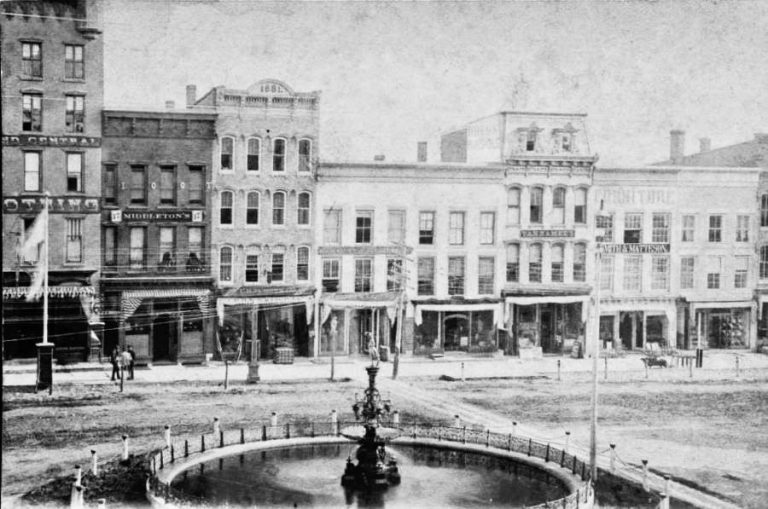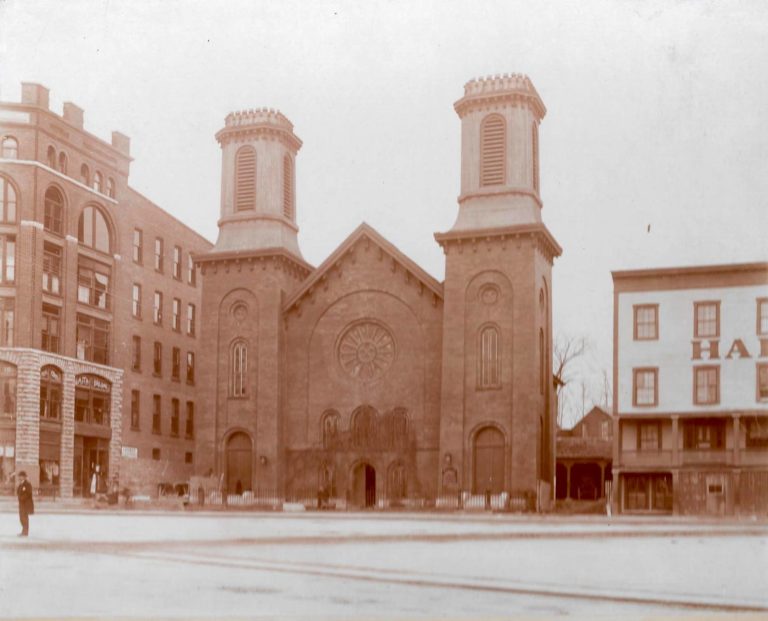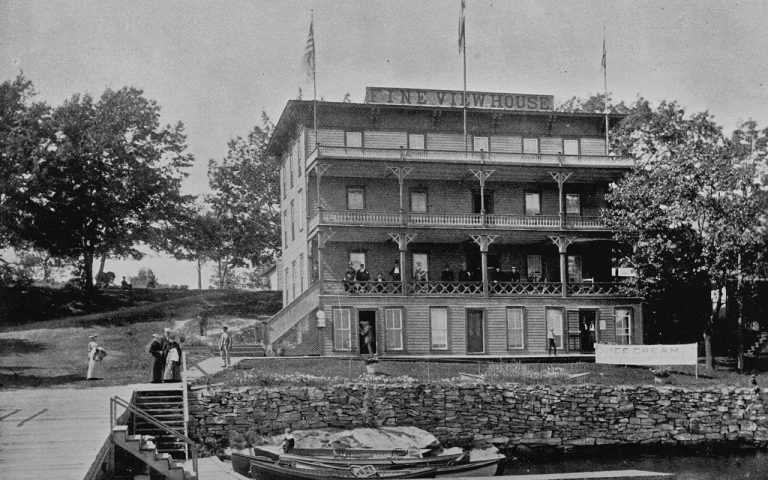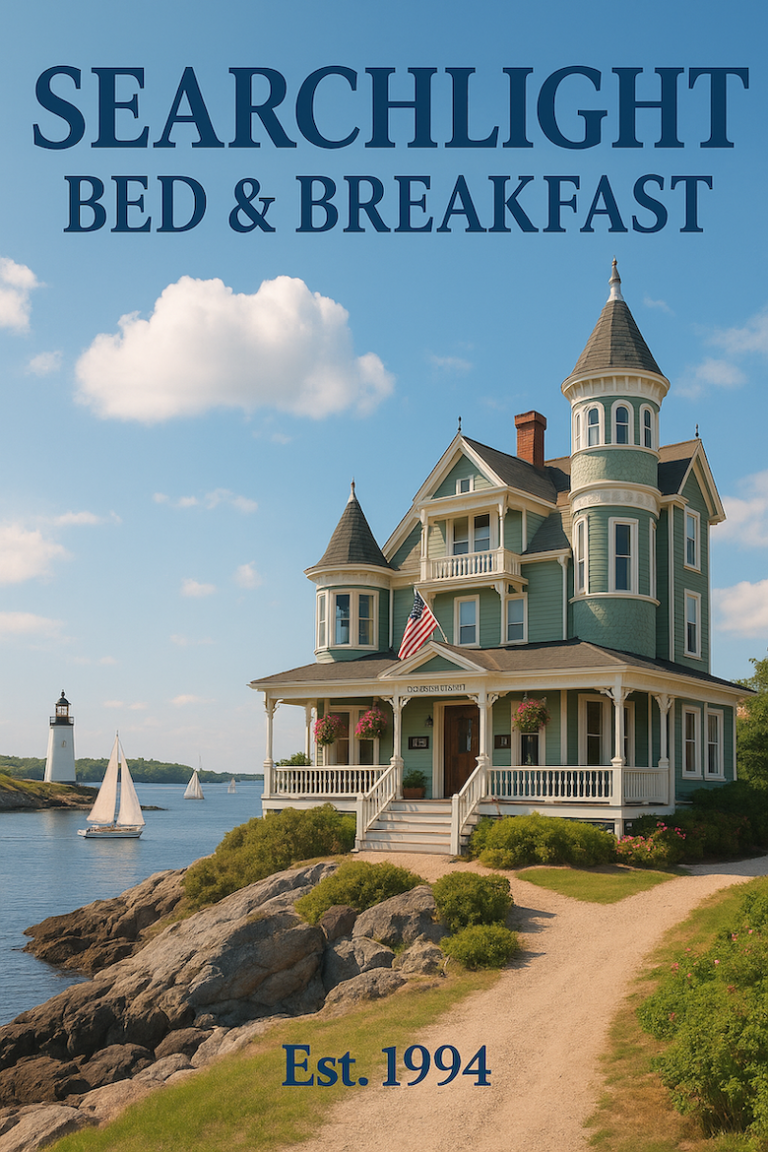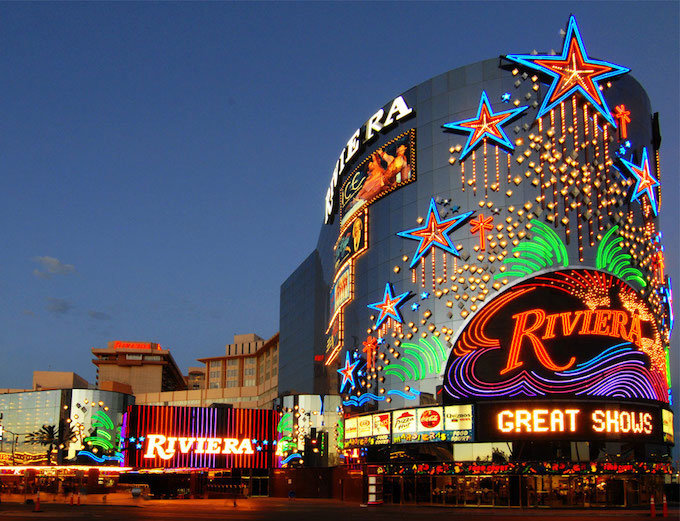The Harris House, One of Watertown’s Earliest Taverns and Hotels on Public Square
Built in the late 1820s by Nathan F. Butts as a Butler’s tavern, the Harris House had many owners over the decades and was purchased in 1852 by Silas Gates, father of Edward M. Gates, who would later become city postmaster. The hotel/tavern became a popular spot for travelers and farmers alike, but by the latter half of the 19th century became something of an antiquated eyesore amongst the newer buildings. It would make it through the turn of the 20th century, but not by much, as it and the Universalist Church next to it were both razed within a short time of one another in 1905-06.
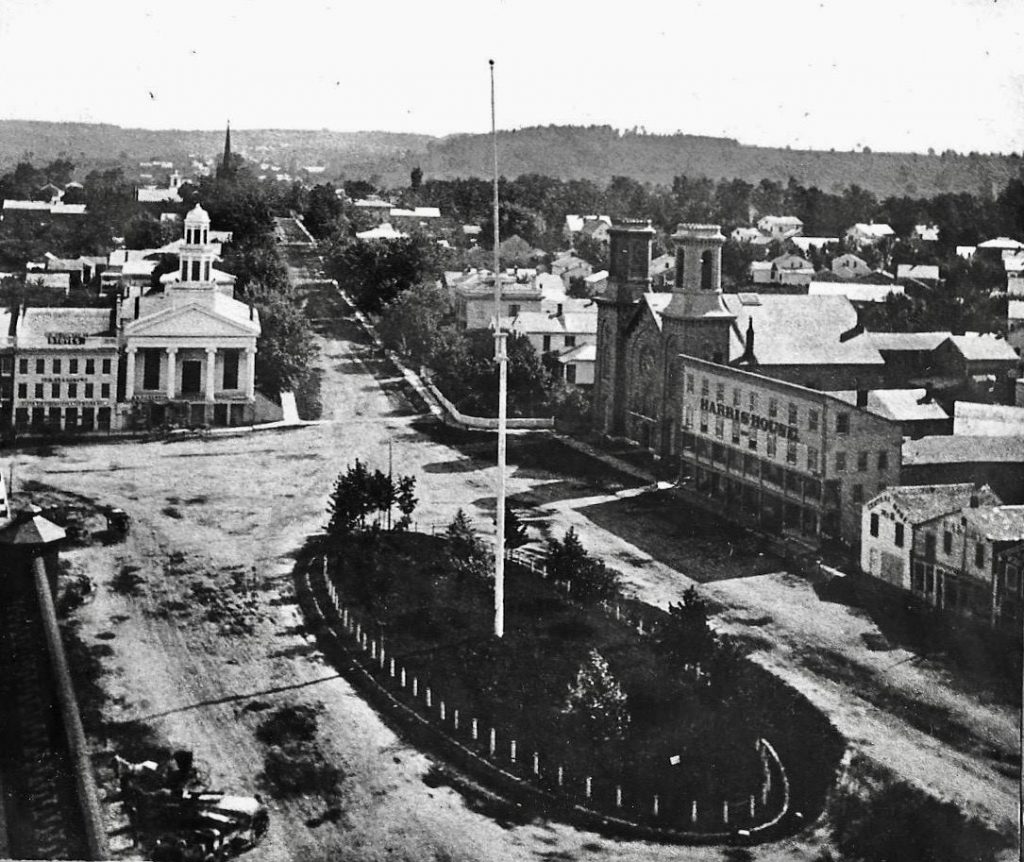
Finding an actual date when the Harris House began is a challenge, to say the least. According to a Watertown Daily Times retrospective piece, which provides some interesting history—
When the Harris House originated is an exceedingly indefinite factor. One of the county histories declares that it began by roofing over a yard, harness shot and feed stable in the early part of the 19th century and that in 1848 it was known as the Empire Hotel and bought by Silas Gates, father of the late Edward M. Gates, first manager and one of the original owners of the City Opera House.
In 1862, an advertisement calling it the Empire House noted it as the former Harris House, the proprietor being G. F. Munro, who had formerly operated the Kirby House on Court Street, which itself later became the Hardiman House. An article in The Times, however, noted that it was remodeled in 1848 and that’s when it became known as Empire House tavern. Nevertheless, in every single photo, the structure is clearly named “Harris House.”
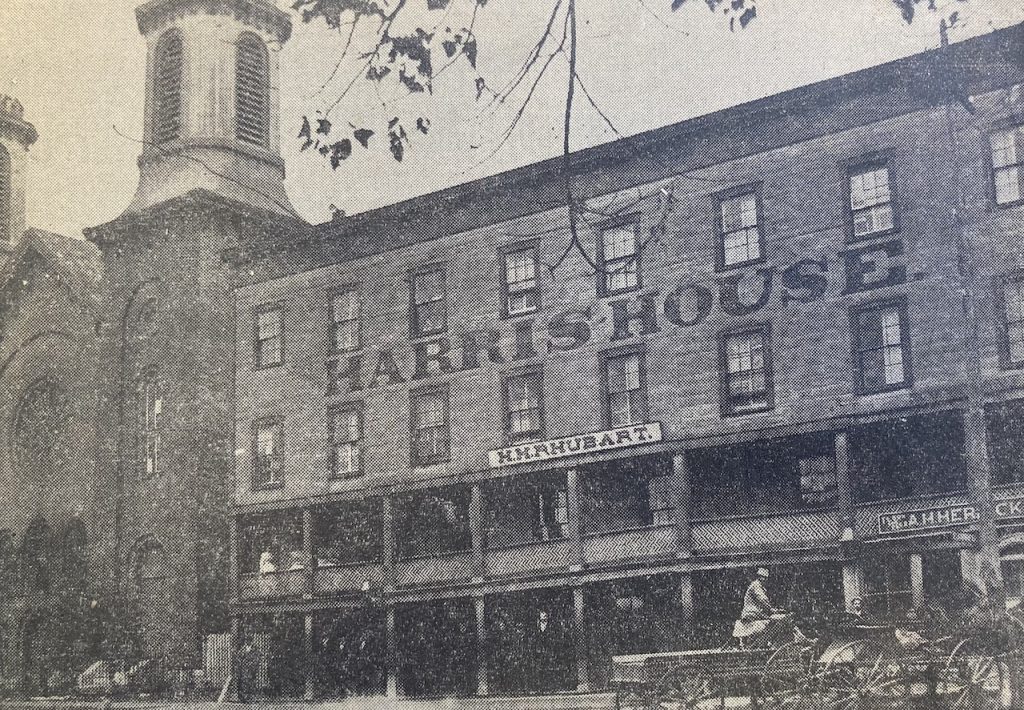
The proprietors seemed to change hotels as often has the places themselves changed the bedding. An example of this is another advertisement from a few months later 1862 announcing it as the Harris House once again–
George W. Jones (formerly of the American Hotel, Watertown) has leased this desirable Tavern Stand, and proposes to keep a first-class Hotel. This House has ample accommodations, and is now kept in the best possible style. The patronage of the traveling public is most respectfully solicited. Stages leave this house for all points. Omnibus runs to and from all trains.
In the old days, what could perhaps be considered a forerunner to the Farmer’s Market occurred at the Harris House. It was the the place where farmers usually congregated and sold their goods. Referencing the same article as earlier, The Times wrote—
The Harris House to the very end enjoyed an extensive patronage of farmers coming to town to sell their produce and do their trading. It was also a meeting place for dealers in horses, cattle, to say nothing of cheese salesmen and buyers.
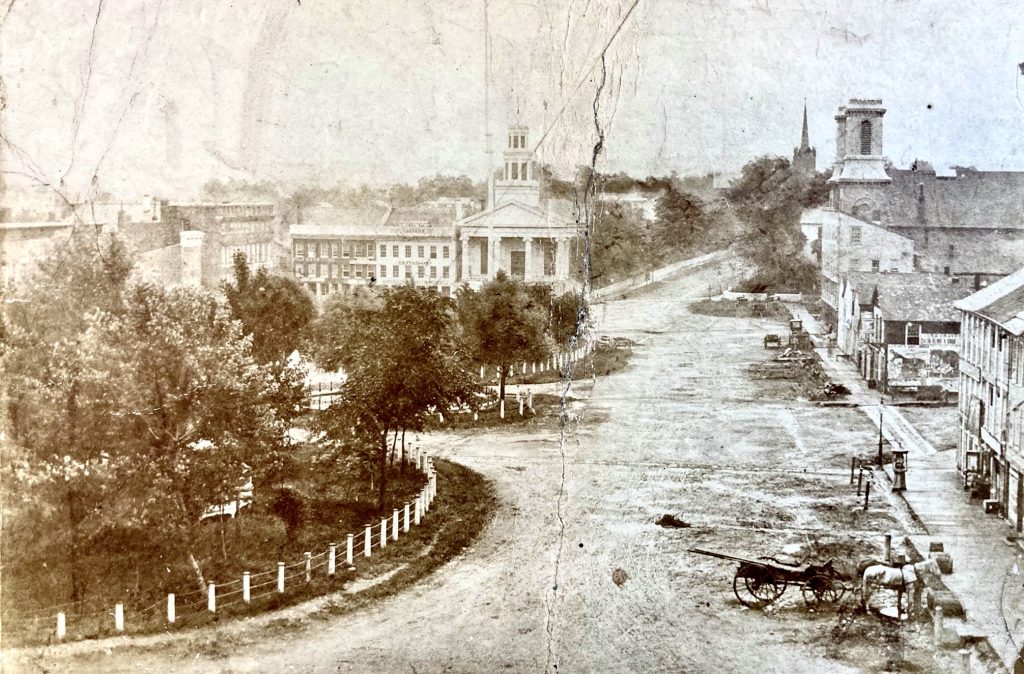
As seen in many of the photos here, A. H. Herrick and Son, dealer in dry goods and of the nearby Excelsior Mills on River Street just off Mill, had a feed store located in the lower right of the Harris House, no doubt on account of the traffic from farmers through there.
In late December 1894, the Harris House closed to the public for a short period due to a decrease in its business during the past several months. Erwin L. Harris, the proprietor, decided to retire from managing it. The following year, the roof of the rear extension collapsed due to heavy snow.
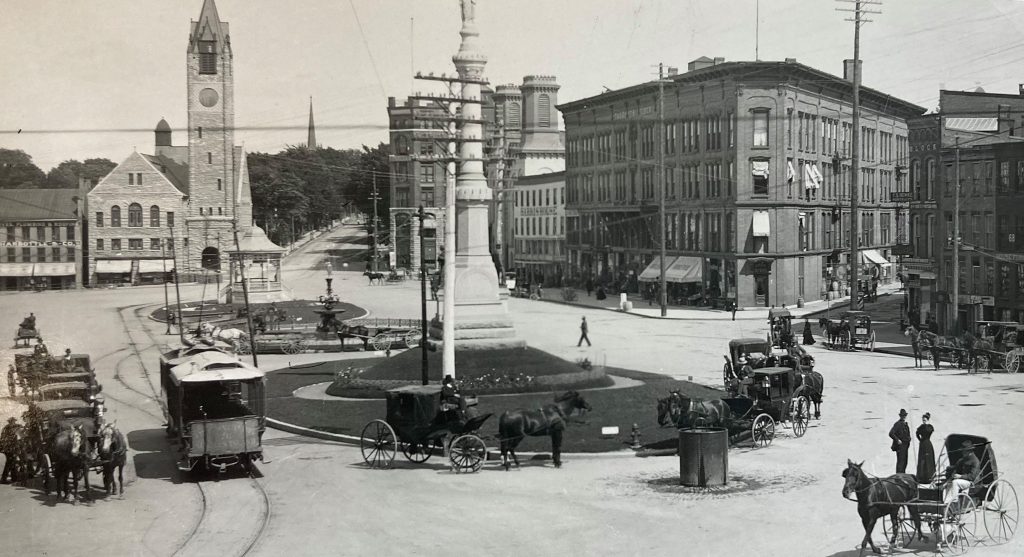
It’s probably around this time that, as noted in one of The Times articles when it was used as a hotel by the Watertown Hotel Co., it was written, “There is fervent prayer that it would vanish in smoke, or tumble down of its own accord.” It was in 1905 that it was finally demolished, around the same time as its neighbor Universalist Church, to make way for both the Hotel LeRay and the Franklin Arcade.

The Watertown Re-Union reported of the welcomed news on January 11, 1905—
HARRIS HOUSE MUST GO
The antiquated Harris House, for many years an eyesore to Public Square, is soon to be replaced by a modern brick structure. Plans and specifications have been drawn by Architect D. D. Kieff and work on the construction of the new building will commence in early spring.
The plans call for a structure after the type of the Paddock Arcade and at a cost of about $35,000. The building will extend from Public Square through to Franklin Street, a distance of about 200 feet, and will have a frontage of 80 feet on Public Square and 68 feet on Franklin Street. The building will be used for stores and office purposes and will be known as Franklin arcade.
This new work will be carried on by the Watertown Hotel Co., which owns the Harris House property, the company consisting of H. W. Taggart, president; B. B. Taggart, secretary and treasurer, and C. C. Inglehart.
